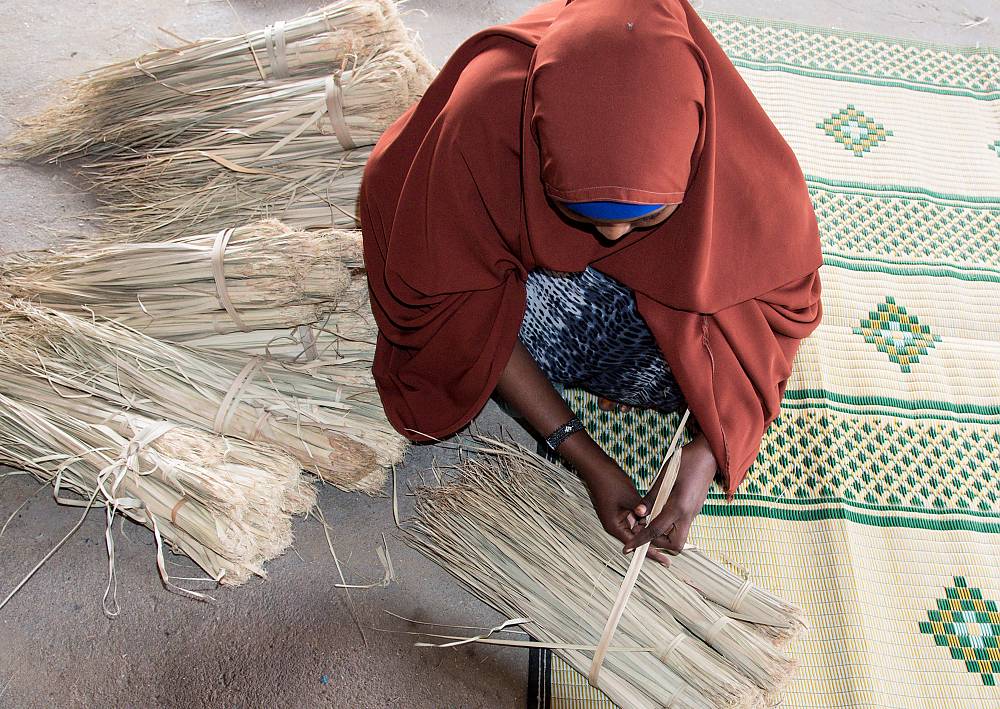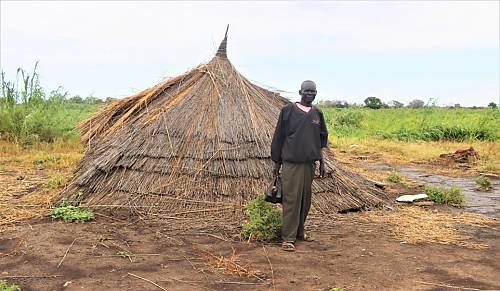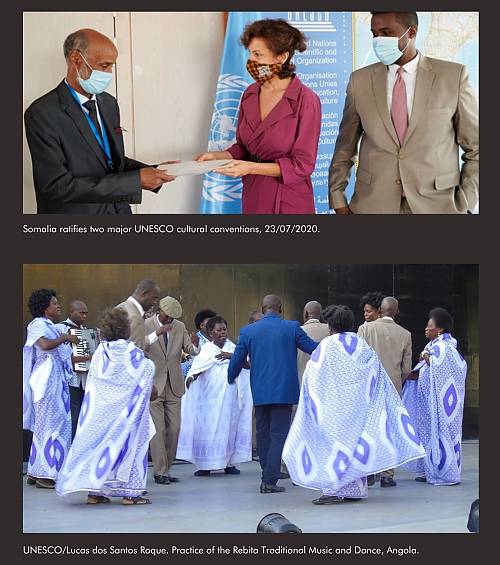Somalia is the latest State Party to have ratified the 2003 Convention for the Safeguarding of the Intangible Cultural Heritage. UNESCO is encouraged to see that a growing number of activities are taking place on the ground and wishes to highlight these dynamic beginnings.
The UNESCO Regional Office for Eastern Africa in Nairobi and the Somalia Academy of Science and Arts (SOMASA), with support from the Somalian Ministry of Education, Culture and Higher Education (MoECHE), has organized the first workshop for national awareness-raising and capacity-building for the safeguarding of Intangible Cultural Heritage in Somalia. The workshop is taking place in two steps, with a first part carried out from 27 to 29 September 2021 and the second one from 11 to 13 October 2021. The hybrid workshop is taking place at SOMASA in Mogadishu with the participation of 30 key stakeholders, including Somali elders and heritage experts, representatives of cultural institutions and the media, as well as 11 youth and 6 female participants. Youth involvement and gender equality are at the core of the UNESCO’s project ‘ Strengthening capacities for safeguarding intangible cultural heritage in Eastern Africa’.
Led by Ms. Emily Drani, the six-day workshop will tackle several aspects of the 2003 Convention and what it has to offer to its State Parties. It includes sessions about awareness-raising strategies, guidance on the Convention’s Operational Directives and exercises to increase capacities for identifying and safeguarding ICH. Lastly, participants will be introduced to the International Assistance mechanism of the Convention.
Ismail Yusuf Osman, Director General for Culture at the MoECHE opened the workshop by recalling the importance of poetry in Somalis’ daily lives, as Somalia has a strong tradition of oral history. He also stressed the importance of involving Somali youth in the process of identifying and safeguarding Somali intangible cultural heritage. As Ismail Yusuf Osman puts it, intergenerational exchanges between elders and youth is essential to ensure transmission of Somali’s rich and diverse intangible cultural heritage in a sustainable way.
For more information on the workshop, please visit the UNESCO Regional Office’s website. A website page dedicated to Somalia is also available and will be updated over time.



